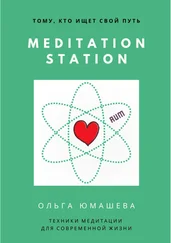David Downing - Potsdam Station
Здесь есть возможность читать онлайн «David Downing - Potsdam Station» весь текст электронной книги совершенно бесплатно (целиком полную версию без сокращений). В некоторых случаях можно слушать аудио, скачать через торрент в формате fb2 и присутствует краткое содержание. Жанр: Шпионский детектив, на английском языке. Описание произведения, (предисловие) а так же отзывы посетителей доступны на портале библиотеки ЛибКат.
- Название:Potsdam Station
- Автор:
- Жанр:
- Год:неизвестен
- ISBN:нет данных
- Рейтинг книги:5 / 5. Голосов: 1
-
Избранное:Добавить в избранное
- Отзывы:
-
Ваша оценка:
- 100
- 1
- 2
- 3
- 4
- 5
Potsdam Station: краткое содержание, описание и аннотация
Предлагаем к чтению аннотацию, описание, краткое содержание или предисловие (зависит от того, что написал сам автор книги «Potsdam Station»). Если вы не нашли необходимую информацию о книге — напишите в комментариях, мы постараемся отыскать её.
Potsdam Station — читать онлайн бесплатно полную книгу (весь текст) целиком
Ниже представлен текст книги, разбитый по страницам. Система сохранения места последней прочитанной страницы, позволяет с удобством читать онлайн бесплатно книгу «Potsdam Station», без необходимости каждый раз заново искать на чём Вы остановились. Поставьте закладку, и сможете в любой момент перейти на страницу, на которой закончили чтение.
Интервал:
Закладка:
That morning, Frau Pflipsen was reading aloud from the single sheet that passed for a daily paper. The Red Army's assault on 'Fortress Konigsberg' was in full swing, and Promi – the Propaganda Ministry – was obviously determined that other German cities should be fully aware of their possible fate. Why, Effi wondered, as Frau Pflipsen cantered through lurid accounts of Soviet atrocities, and the faces around her grew more alarmed. What good did scaring people do? If Goebbels really believed that German defeats were down to a lack of backbone, then he wasn't such a clever little shit after all.
Once Frau Pflipsen had finished her recitation, Frau Esser raised an arm in hopeful pursuit of silence. Her husband had been block-warden until mid-March, when an unheralded raid had killed him and his infant cabbages on a nearby allotment, and she had inherited the post by default no one else wanted the job, and no one else could read his handwritten lists of the local residents. Frau Esser was less than keen herself, a fact that aroused occasional feelings of guilt in her own breast, but bothered no one else. During these final weeks, less than keen seemed a highly appropriate response.
'I have a short announcement,' she said. 'Any woman who wishes can register for a half day's firearms training at the barracks down by the Li-etzensee. The instructors will be from the SS. If you're interested come and see me.'
A couple of women did, and Effi thought about joining them. Were they handing out guns with the training? If so, it might be worth risking a few hours in the company of the SS. She smiled inwardly at the memory of the last such occasion, when she and Ali had accepted a poster invitation to an SS Christmas party on Potsdamer Platz. The food and drink had been wonderful, and their only problem had been shaking off Ali's newly acquired SS suitor. He had insisted on escorting her back to the apartment, and only relented when Ali explained that her husband – a Wehrmacht major – was expected home on leave that day, and would be outraged if his wife returned with another man.
Those were different days, Effi thought. In 1943 neither had really expected to survive the war, and the feeling of nothing to lose had encouraged the taking of risks. Now that survival seemed almost in reach, the instinctual urge was to do nothing that might attract attention. She would forget about the firearms training, Effi decided, but she might still try to get hold of a gun. Men behaved badly in wars, particularly in their final days, when neither winners nor losers had much to gain by behaving well.
She lay back on her camp bed, hoping to get some more sleep, just as the sound of exploding bombs penetrated the shelter. They were falling at least a mile away, Effi guessed – like most Berliners, she had grown quite proficient at estimating such things.
The next stick was closer, but not close enough to shake dust from the ceiling. A quarter-mile at least. She looked up, wondering for the umpteenth time whether the floor above would hold if the building above collapsed. They had done their best to shore it up, but no one really knew. If it did come down, she hoped it came down on her head. The thought of being buried alive filled her with dread.
More explosions, and this time little specks of dust floated down from above. Like everyone else, Effi braced herself for the sudden crack of thunder, but as the moments lengthened it became apparent that none were coming. There were muffled explosions in the distance, then more still further away.
The all-clear sounded earlier than usual. Provided there was no British daytime raid, the streets should be safe until dark, and Effi knew she should use the opportunity to do some shopping. With the Russians on the Oder, who knew when the city's ration supplies would suddenly dry up?
It was still grey outside, and most of the eastern sky was full of smoke. The government district, she guessed. Serve them right. She didn't suppose Hitler had been standing by a window when it blew in, but one could always hope.
The queue at the local grocery was long, but there was still no sign of food running out. Effi used her and Ali's ration cards to buy rice, lentils, dried peas, a small amount of fat and an even smaller piece of bacon. There was, unusually, no ersatz coffee to be had, but few seemed disposed to lament the fact. And in general, the mood seemed one of almost cheerful resignation. For months the favourite joke among Berliners had been 'enjoy the war – peace will be dreadful', but lately things had got so bad that even a Russian occupation might be some sort of improvement.
It was almost three when Effi left the shop, and the sun was struggling to break through the clouds. She thought about walking to one of her favourite cafes on Savigny Platz or the Ku'damm, not for the barely drinkable coffee and barely edible cakes, but because taking a seat on the sidewalk and watching the world go by was a way of stepping back in time, to when such pleasures could be taken for granted. It was too risky, of course – the Gestapo greifer hovered around those cafes like vultures. They, above all people, understood the fugitive's desperate desire to relive a few moments of his or her former life.
She walked home. Discovering to her surprise that gas was available, she put water on for a pot of tea. The flame was pathetically low, but half an hour later, just as Ali was letting herself in through the apartment door, steam began to rise.
'How did it go?' Ali asked as she took off her coat.
She was looking good, Effi thought. Too thin, of course, and their diet was doing nothing for her skin complexion, but she would be a lovely young woman again when all this was over. A real catch for any man who could cope with an independent spirit, and she believed that Fritz could. 'I don't really know,' she admitted in answer to the question. She gave Ali a run-through of the night's events, ending with the Gestapo officer. 'I don't know whether he believed me or not,' she concluded. 'If he didn't, then we may have visitors. But we've had them before,' she added, seeing Ali anxiously purse her lips, 'and we sent them packing. Remember the ice?'
Ali laughed. About eighteen months earlier, the Gestapo had suspected 'Frau von Freiwald' of harbouring a Jewish U-boat. She and her 'niece' had been living in a ground floor apartment then, and watchers had been stationed front and rear. One evening Effi had poured boiling water across the path at the back, and the freezing temperature had done its work. A few hours later they were treated to the sound of a heavy fall and subsequent volley of curses. Soon thereafter the watchers were withdrawn, and a month or so later Effi was able to resume her provision of temporary sanctuary for those in desperate need.
'And Erik will warn us if things have gone wrong,' she added.
'If he's not the first one they arrest,' Ali protested, but without too much conviction.
Years earlier, Effi had listened to a conversation between John and his ex-wife's brother Thomas about their times in the trenches. There were some men, they agreed, whom everyone knew would remain unscathed. The Swede, she realised, had that sort of aura.
Of course, Russell had added at the time, the intuition was sometimes mistaken, and when one of the certain survivors was killed everyone else became twice as depressed.
'So how was internment?' Russell asked Joseph Kenyon that evening. Like all the American diplomats and journalists marooned in Berlin when the Japanese carrier fleet hit Pearl Harbor, Kenyon had endured five long months of 'protective custody' at Bad Nauheim's Grand Hotel. Russell had been on the run by then, or he would shared the same fate.
'It was probably a decent hotel before the war,' Kenyon said. 'But by the time we arrived the staff were all gone, and the heating and electricity had both packed up. Things got better, I suppose. After we kicked up a fuss, we probably ate better than the local Germans, but that wasn't saying much.'
Читать дальшеИнтервал:
Закладка:
Похожие книги на «Potsdam Station»
Представляем Вашему вниманию похожие книги на «Potsdam Station» списком для выбора. Мы отобрали схожую по названию и смыслу литературу в надежде предоставить читателям больше вариантов отыскать новые, интересные, ещё непрочитанные произведения.
Обсуждение, отзывы о книге «Potsdam Station» и просто собственные мнения читателей. Оставьте ваши комментарии, напишите, что Вы думаете о произведении, его смысле или главных героях. Укажите что конкретно понравилось, а что нет, и почему Вы так считаете.












